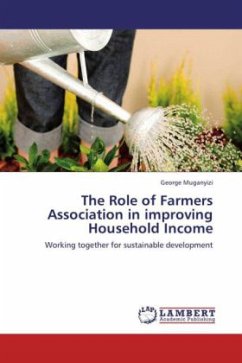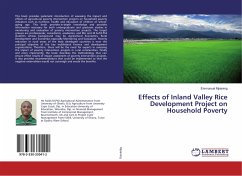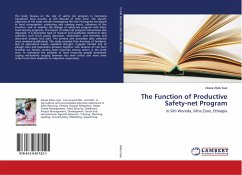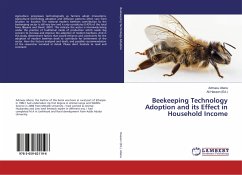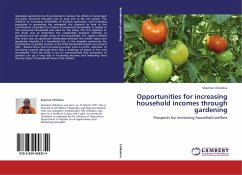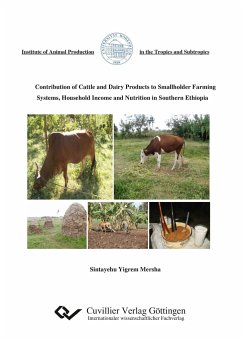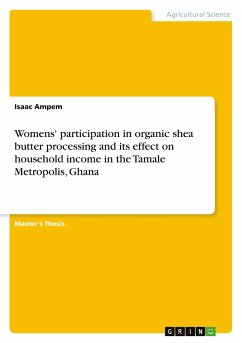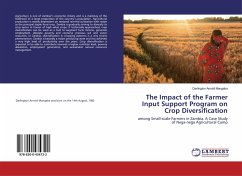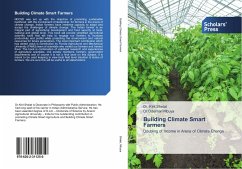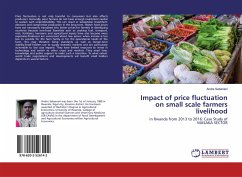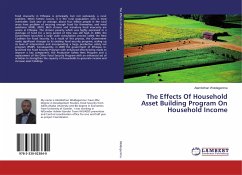
The Effects Of Household Asset Building Program On Household Income
Versandkostenfrei!
Versandfertig in 6-10 Tagen
33,99 €
inkl. MwSt.

PAYBACK Punkte
17 °P sammeln!
Food insecurity in Ethiopia is principally, but not exclusively, a rural problem. When famine occurs, it is the rural population who is most vulnerable. Each year on average, about four million people in the rural areas have problem of securing enough food for themselves, and need assistance (FDRE, 2001). Both chronic and transitory food insecurity are severe in Ethiopia. The chronic poverty which was highly expressed in a shortage of food for a long period of time was still high. In 2003, the Government launched a large scale consultation process called the New Coalition for Food Security. As...
Food insecurity in Ethiopia is principally, but not exclusively, a rural problem. When famine occurs, it is the rural population who is most vulnerable. Each year on average, about four million people in the rural areas have problem of securing enough food for themselves, and need assistance (FDRE, 2001). Both chronic and transitory food insecurity are severe in Ethiopia. The chronic poverty which was highly expressed in a shortage of food for a long period of time was still high. In 2003, the Government launched a large scale consultation process called the New Coalition for Food Security. As a result of this process, the Government made significant changes to its existing food security program, scaling up its level of intervention and incorporating a large productive safety net program (PSNP). Consequently, in 2009 the government of Ethiopia re-launched the Food Security Program with enhanced efforts being made to improve a key component, the Productive Safety Nets Program and a replacement of the Other Food Security Program with an enhanced set of activities to strengthen the capacity of households to generate income and increase asset holdings.



